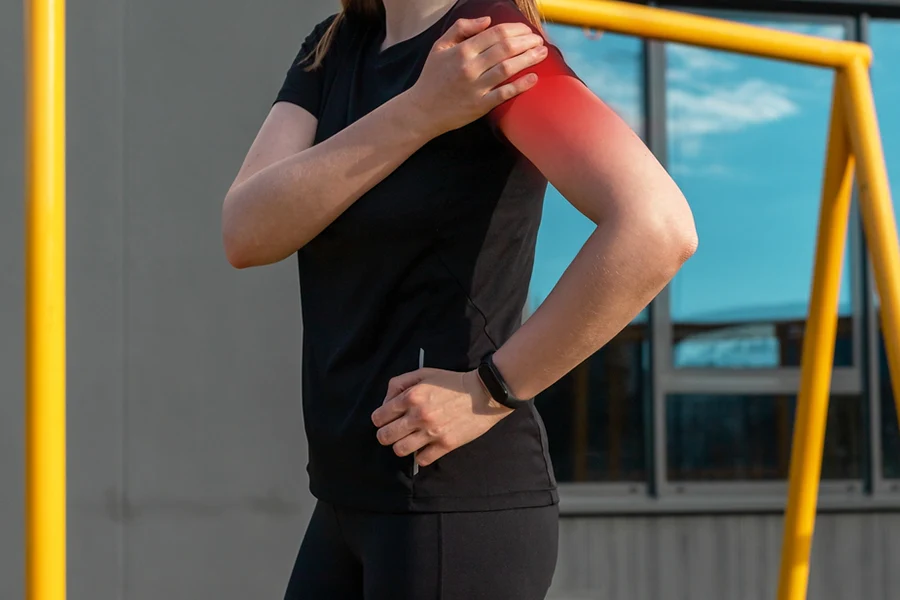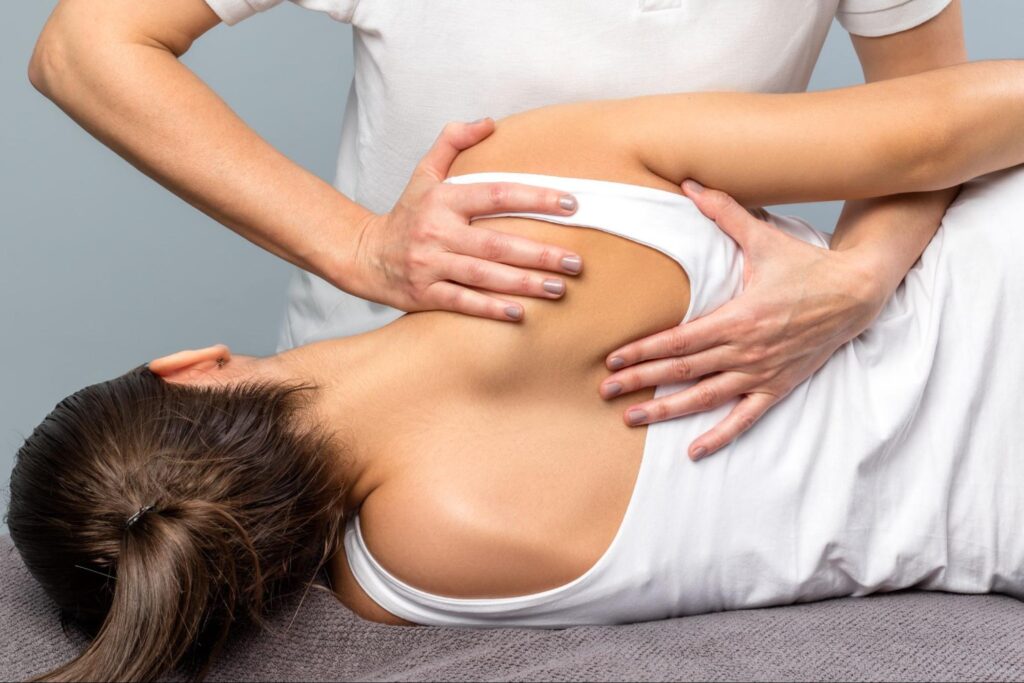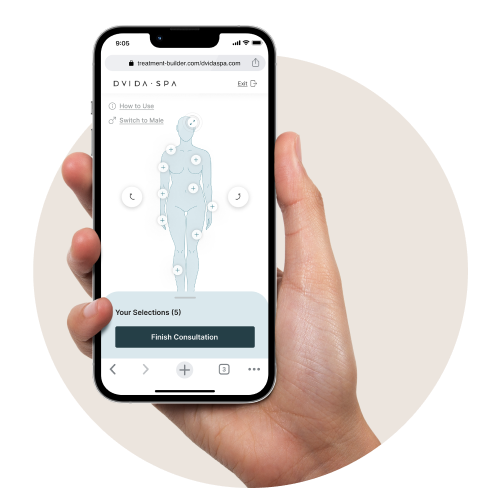
What are the causes of shoulder pain? Some it’s by sports that involve repetitive overhead movements, such as swimming, weightlifting, and tennis, while other injuries in the shoulders are also developed through daily living activities, which include washing walls, hanging drapes, or maybe even some gardening.
In a Hurry? Dial 984-253-3377 now!
Do You Have Shoulder Pain? Here’s What to Ask Yourself
If you have shoulder pain, you might wonder the following:
- Do you have pain when moving your arm into any of its normal positions?
- Does your shoulder feel like it will pop or slip out of place?
- Does a lack of strength stop you from doing your everyday tasks?
If yes, then come visit Dvida, and we will evaluate how serious your problem is.
Common Conditions:
- AC separation
- Frozen shoulder
- Glenohumeral arthritis: shoulder arthritis
- Labral tears
- Multidirectional Instability
- Impingement of the rotator cuff
- Tear of the rotator cuff
- Shoulder dislocation
- Injury to the shoulder
Typical Causes of Shoulder Pain
The causes mostly don’t come from bones but from soft tissues like muscles, ligaments, and tendons. Generally, shoulder problems can be grouped into three broad categories:
- Tendinitis / Bursitis
- Injury/instability
- Arthritis
Much rarer causes of pain from the shoulder include tumors, nerve problems, and infections.

In a Hurry? Dial 984-253-3377 now!
A Tendinitis
A cord-like tissue that connects muscle with bone or another tissue is called a tendon. Nay example includes the wearing down of the sole of shoes as one wears them for some time. Tendinitis can be subdivided into several types. Acute tendinitis may come about after excessive sports or similar activities like throwing a ball. Chronic tendinitis may be due to degenerative diseases and repeated wear and tear that comes about with aging.
It may be set in primarily through mechanical causes because of an acute injurious condition or the degeneration of the tendons due to age. Most of these conditions are related to the rotator cuff. The term rotator cuff comprises muscles and tendons that provide stability and motion in the shoulder area.
Shoulder Dislocation
Dislocated shoulder: Partial or complete dislocation of the shoulder occurs due to either a fall or contact sports such as rugby and football. A hard hit pulls the arm out of the socket. The arm swells, becomes weak and numb, and bruises. You go back to the doctor to have it put back again and are then advised to go to an orthopaedic clinic for treatment until it becomes stable.
Tears of the Rotator Cuff
The shoulder is the most movable joint in the human body, and can do numerous things. It makes the shoulder at risk of overuse due to bending a great way, over time, torn, and become painful. Rupture of the rotator cuff is due to the shoulder ligament or muscle. Inappropriate posture, lifting, falling, and repeated strain may cause injuries to the rotator cuff.
Above 40 years of age, a rotator-cuff tear is more frequent since the production stopping by the body of collagen and calcium will be accumulating in the joints of the shoulder. However, it can be with anyone.
Rotator cuff injury requires treatment without surgery, depending on the severity. Most times, ice would be the best modality. Abandon any activity that worsens the pain; at this time, ice is being applied to the injured site, compression to the injured area, and elevation above the proximal heart level is used to reduce blood flow to the area.
Consult a physician immediately if there is pain in your dominant arm or shoulder that is making noises, and hurts when you sleep on it or eat.
Bursitis
When the shoulder is put into exaggerated conditions, it causes hypertrophy and inflammation of the bursa between the rotator cuff and the frame of the shoulder, or inflammation happens within the walls of the bursae, fluid structures around the joint that serve to lessen friction accompanied with movement of the shoulder, most frequently happening. This could further be due to the increased incidence of rotator cuff tendinitis. When the shoulder is sore and swollen, it may become jammed; the shoulder joints stiffen and turn into frozen shoulders. However, a good aspect of this condition is that it resolves quickly with suitable treatment in the majority of cases.
Injury/Instability
At times, one of the bounding bones of the shoulder joint might move (or, if injured forced) out of position in the usual way. An instability can go as far as dislocating a shoulder joint. However, symptoms like pain or unsteady feelings while raising the arm from the body or going above the head may develop over time as there is a repeated instance of partial or complete dislocation. The shoulder feels like slipping or feels strange, or is uncomfortable with raising the arm above the head.
Arthritis
Arthritis is one of the causes of shoulder pain. There are different types of arthritic conditions, and in most instances, they are caused as a result of either wear and tear or old age. This swelling and pain around joints feels tight and stiff. With exercising or injury at the workplace or of a sports nature, arthritis results.
To manage pain, people refrain from making movements of the shoulder. His soft tissues around the joint may harden and become tight.

Summing Up!
Never ignore shoulder pain, but seek correct treatment. For weakness, stiffness, or pain in your shoulder, contact us immediately at Dvida Med Spa. Our medical professionals will be able to determine the causes of shoulder pain and provide you with the best treatment to restore comfort and mobility.
Don’t let the symptoms keep you down — make an appointment at Dvida Med Spa and discover how hormone replacement therapy can aid in getting you back to feeling like yourself!
Call or book online to get started today.

